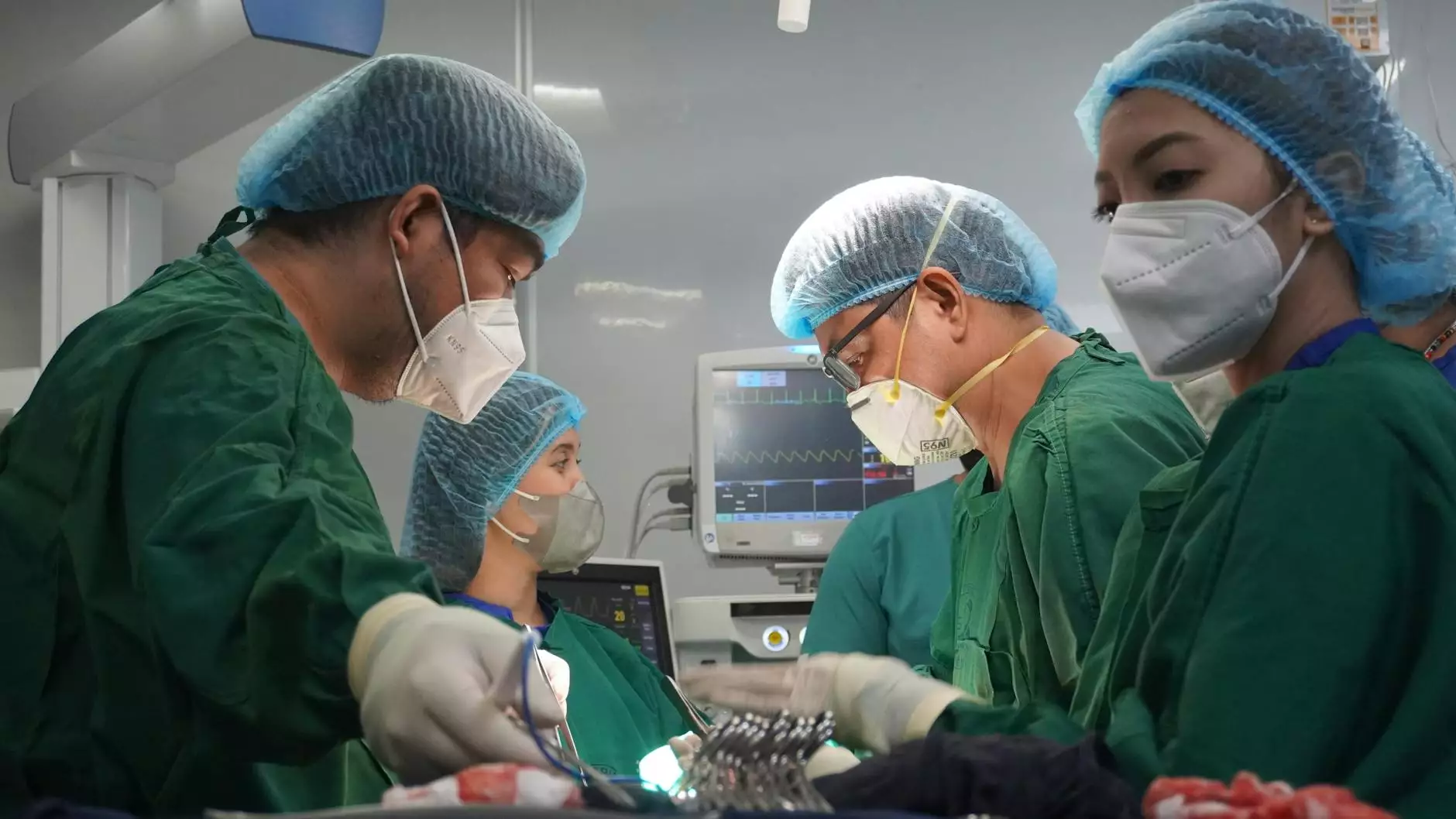The Comprehensive Guide to Gastric Sleeve Surgery

Understanding Gastric Sleeve Surgery
Gastric sleeve surgery, also known as vertical sleeve gastrectomy, is a popular weight-loss procedure that has transformed the lives of countless individuals. It involves the surgical removal of a large portion of the stomach, resulting in a sleeve-shaped stomach that limits food intake and significantly reduces hunger. The procedure is designed for individuals struggling with obesity, providing them with a viable option to achieve their health and wellness goals.
Why Choose Gastric Sleeve Surgery?
For many, traditional weight loss methods such as dieting and exercise may not yield the desired results. Gastric sleeve surgery offers a powerful alternative. Here are some of the primary reasons why individuals choose this surgical option:
- Significant Weight Loss: Many patients lose 50-70% of their excess weight within 12-18 months post-surgery.
- Improved Health Outcomes: The procedure can lead to a reduction or elimination of obesity-related conditions such as type 2 diabetes, hypertension, and sleep apnea.
- Long-Lasting Results: With a commitment to lifestyle changes, patients can maintain their weight loss for years.
- Enhanced Quality of Life: Most patients report increased energy levels, improved mobility, and enhanced overall well-being post-surgery.
Who is a Candidate for Gastric Sleeve Surgery?
Not everyone qualifies for gastric sleeve surgery. Generally, potential candidates must meet certain criteria, including:
- Body Mass Index (BMI): A BMI of 40 or higher, or a BMI of 35 or higher with obesity-related health conditions.
- Age: Most patients are between 18 and 65 years old, but exceptions can be made.
- Previous Weight Loss Attempts: Candidates should have unsuccessfully tried other weight loss methods.
- Commitment to Lifestyle Changes: Successful long-term outcomes require a commitment to healthier eating and regular physical activity.
The Gastric Sleeve Surgery Procedure
The gastric sleeve surgery is typically performed laparoscopically, which involves smaller incisions, less pain, and quicker recovery. Here’s a step-by-step overview of the procedure:
- Anesthesia: Patients are given general anesthesia to ensure comfort throughout the procedure.
- Laparoscopic Technique: Surgeons make small incisions in the abdomen and use a camera to guide the surgery.
- Stomach Resizing: Approximately 75-80% of the stomach is removed, leaving behind a sleeve-shaped stomach the size of a banana.
- Closure: The incisions are closed with sutures or surgical glue.
Recovery After Gastric Sleeve Surgery
Recovery from gastric sleeve surgery varies by individual but generally includes:
- Hospital Stay: Most patients stay in the hospital for 1-2 days.
- Rest: Rest is essential for the first few weeks as the body heals.
- Diet Progression: Patients will follow a specific diet plan starting from clear liquids to puree foods, gradually reintroducing solid foods.
- Follow-Up Appointments: Regular follow-ups with the healthcare team are necessary to monitor progress and nutritional intake.
Benefits of Gastric Sleeve Surgery
The benefits of gastric sleeve surgery extend beyond just weight loss. Here are some advantages associated with the procedure:
- Reduced Hunger: Unlike other weight loss surgeries, gastric sleeve surgery greatly reduces the production of ghrelin, the hunger hormone.
- Minimal Nutritional Complications: Compared to other bariatric surgeries, gastric sleeve surgery has fewer nutritional deficiencies.
- Shorter Operation Time: The procedure typically takes about 1-2 hours, with less operating room time compared to other surgical options.
- Less Post-Surgical Pain: Patients often report less postoperative pain and quicker returns to normal activities.
Potential Risks and Complications
While gastric sleeve surgery is generally safe, it is important to understand the potential risks and complications. These include:
- Bleeding: There is a risk of bleeding during or after the surgery.
- Infection: Like any surgical procedure, there is a risk of infection at the incision sites.
- Gastroesophageal Reflux Disease (GERD): Some patients may experience increased reflux after surgery.
- Nutritional Deficiencies: Patients must adhere to a rigorous supplementation routine to avoid deficiencies in vitamins and minerals.
Life After Gastric Sleeve Surgery
The journey does not end after the surgery. Adapting to life after gastric sleeve surgery involves significant lifestyle changes:
- Dietary Changes: Following a balanced diet rich in protein, vitamins, and minerals is crucial for success.
- Regular Exercise: Incorporating physical activity into daily routines helps maintain weight loss and improve overall health.
- Support Groups: Engaging with support groups or counseling can be beneficial for emotional and psychological support.
- Continuous Monitoring: Regular check-ups with healthcare providers to monitor progress and nutritional needs are important.
Choosing the Right Surgeon
Selecting the right surgeon is critical to the success of gastric sleeve surgery. Factors to consider include:
- Credentials: Look for board-certified surgeons with specialization in bariatric surgery.
- Experience: Choose a surgeon with extensive experience performing gastric sleeve procedures.
- Patient Reviews: Research reviews and testimonials from previous patients to gauge satisfaction and outcomes.
- Supportive Staff: A supportive healthcare team is essential for counseling, nutritional guidance, and postoperative care.
Conclusion
Gastric sleeve surgery is a transformative procedure that can lead to significant weight loss and improved overall health for eligible candidates. By understanding the procedure, preparing for the journey ahead, and committing to lifestyle changes, individuals can achieve lasting success. If you're considering gastric sleeve surgery, consult with qualified professionals to determine if it's the right option for you. The road to a healthier life is within reach—take that first step today!
For further information on gastric sleeve surgery and other healthcare questions, visit clinichealthbeauty.com.



